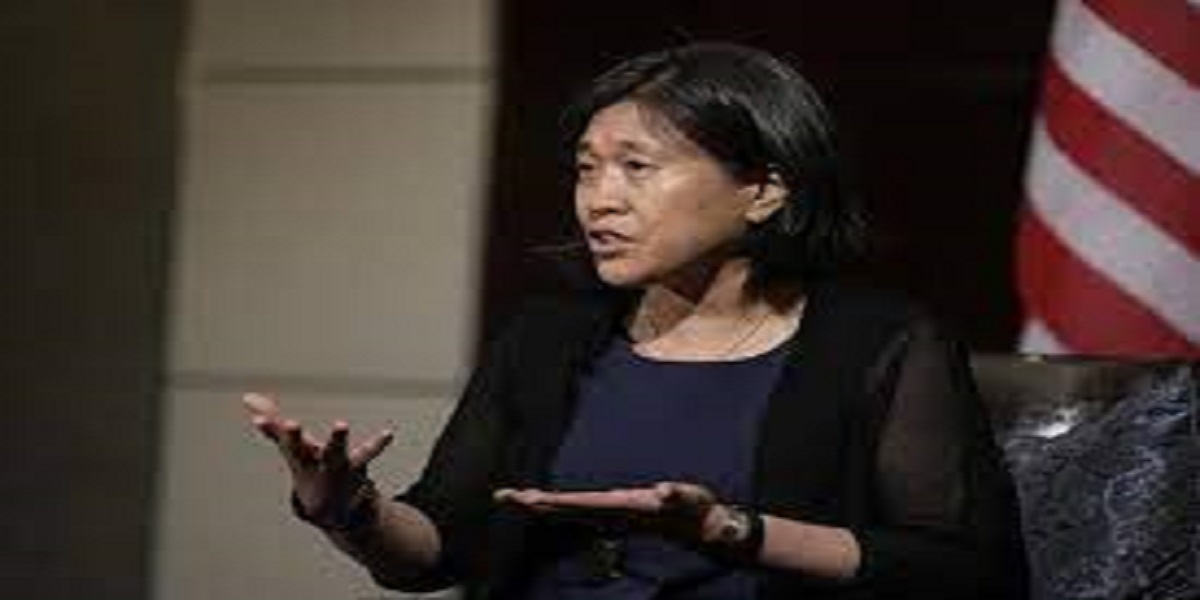With world economies generally experiencing over two years of the Covid pandemic and worldwide inventory issues exacerbated by Russia’s attack of Ukraine, the United States has an “unimaginable open door” to draw in with different countries on a typical battleground and manufacture new organizations and arrangements, the top U.S. exchange arbitrator told The Associated Press on Friday.
U.S. Exchange Representative Katherine Tai showed up in Thailand for gatherings with Asia-Pacific Economic Cooperation bunch exchange serves, that very day President Joe Biden began an Asia visit in South Korea.
The two are to interface up in Japan, where they are to report plans for another Indo-Pacific Economic Framework, which Tai said regardless of anything else would illustrate “the U.S. withstanding responsibility as an accomplice to the nations around here” as Washington looks to hold developing Chinese impact in line.
“It is a vigorous and comprehensive way to deal with financial aspects and putting resources into one another that we’re bringing,” she said.
It will remember commitment for store network security, clean energy, decarbonization, charges and hostile to defilement measures, she said.
Indeed, even before the declaration, expected Monday, Japan invited the drive, communicating its help Friday and saying it was thinking about joining.
Tokyo is as yet stinging at the U.S. choice in 2017 under then-President Donald Trump to haul out of the Trans-Pacific Partnership economic accord, and assumed a key part in uniting the other 11 individuals from that settlement, presently known as the Comprehensive and Progressive Agreement for Trans-Pacific Partnership.
Noriyuki Shikata, Japan’s Cabinet secretary for public undertakings, said in light of the fact that the IPEF is supposed to be less centered around market access and duties, Tokyo actually trusts the U.S. will rejoin the TPP despite the fact that Washington has said it will not.
However, despite the fact that there isn’t the guarantee of more noteworthy admittance to U.S. markets like in conventional economic alliance, the IPEF will in any case increment valuable open doors, Tai said.
“We are not bringing conversations and discussions around levy advancement,” she said. “However, in layman’s terms, while we’re discussing admittance to business sectors and market open doors, that totally is something that is essential for our discussion.”
Tai, who is viewed as a critical thinking practical person on exchange strategy, has said the focal point of U.S. strategy has moved away from globalization for the good of its own to one that focuses on security and the interests of laborers as well as shoppers.
Before she was selected USTR, Tai was boss exchange counsel for the House Ways and Means Committee, where she dealt with talks over a redid North American economic agreement.
One key goal was to refashion the agreement to make it simpler for Mexican laborers to frame free associations and request better compensation and advantages. That could diminish motivators for U.S. organizations to move their assembling south of the line to exploit less expensive work.
With each of the ongoing interruptions in the worldwide economy, including the Covid pandemic and the conflict in Ukraine, which has caused an ascent in food and fuel costs, she said partners she has spoken with in the Asia-Pacific Economic Cooperation bunch at present gathering in Thailand have been energetic about the possibility of the new monetary system that could be useful to laborers and organizations.
“I don’t believe anyone’s economy is more grounded as a result of COVID and there is a really unavoidable feeling of nervousness about how we recuperate,” she said. “I really believe that this presents with an inconceivable open door.”
She said her partners discussed requiring “flexibility, supportability and incorporation.”
“To the degree that all of us are searching for those subjects in our financial strategies at the present time, I imagine that there’s enormous chance for us to meet up to manufacture a bunch of boundaries in our worldwide economy to empower us to fabricate another monetary world request that will be more versatile, more comprehensive and more manageable for our planet and for our kin.”
She said the U.S. in Asia was “extremely, centered around our opposition with China,” and that the structure was additionally viewed as a successful counter to the developing impact of Beijing.
“The United States will continuously bring a financial commitment that is grounded in our qualities, which is concerning transparency, regarding our market and our economy, and furthermore regarding our general public,” she said.
“So the commitment that we will bring commonly, innately will be unique in relation to China’s commitment to the district. I feel that is a significant piece of the U.S. presence around here, that we bring a market-based and open methodology.”
Tai is agreeable to a complete methodology toward progressing exchange issues with China, and has been pushing back at U.S. Depository Secretary Janet Yellen’s calls for disposing of some Trump-period levies on Chinese products to battle homegrown expansion in the United States.
She said she saw the levies as “an apparatus in the monetary strategy tool compartment” which could be thought of, yet close by “a great deal of different devices available to us.”
“What is vital as far as we’re concerned is to guarantee that this medium-term key realignment that we realize we really want to achieve is something that we can achieve, and that nothing that we do in the present moment sabotages that bigger objective,” she said.
“We can’t stand to emerge from this undeniably challenging time placing ourselves in the United States in a more weak situation than we were in before we placed this period.”





















